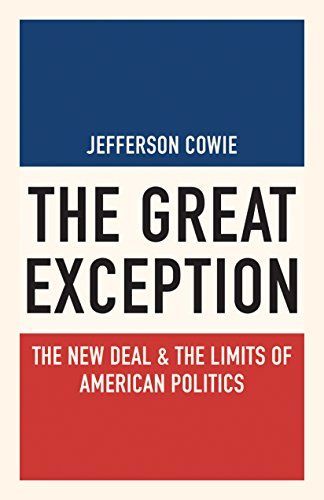
The Great Exception The New Deal and the Limits of American Politics
The New Deal: where does it fit in the big picture of American history? What does it mean for us today? What happened to the economic equality it once engendered? In The Great Exception, Jefferson Cowie provides new answers to these big questions. Beginning in the Great Depression and through to the 1970s, he argues, the United States built a uniquely equitable period that contrasts with the deeper historical patterns of American political practice, economic structure, and cultural outlook. During those exceptional decades, which Cowie situates in the long arc of American history, the government used its considerable resources on behalf of working Americans in ways that it had not before and has not since. The crises of the Depression and World War II forced realignments of American politics and class relations, but these changes were less a permanent triumph of the welfare state than the product of a temporary cessation of enduring tensions involving race, immigration, culture, class, and individualism. Against this backdrop, Cowie shows how any renewed American battle for collective economic rights needs to build on an understanding of how the New Deal was won—and how it ultimately succumbed to contrasting patterns ingrained in U.S. history. As positive as the era of Roosevelt was in creating a more equitable society, Cowie suggests that the New Deal may necessarily belong more to the past than the future of American politics. Anyone who wants to come to terms with the politics of inequality in U.S. history will need to read The Great Exception.